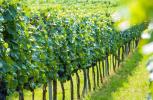H2020 WINETWORK Project: Network for the exchange and transfer of innovative knowledge between European wine-growing regions to increase the sector's productivity and sustainability
- Type Project
- Status Filled
- Execution 2015 -2017
- Assigned Budget 1.999.221,75 €
- Scope Europeo
- Main source of financing Horizon 2020
- Project website WINETWORK
Based on a previously developed and tested innovation-oriented research methodology, the WINETWORK project aims to boost collaborative innovation in the wine sector. The project will implement a methodology that has been successful in promoting demand-driven innovations in previous regional and European projects.
This approach relies primarily on the interaction between a network of facilitating agents, several regional technical working groups, and a European Scientific Working Group. A participatory approach is used to translate scientific and practical results into fact sheets, which are used to prepare materials tailored to end-users. A bottom-up approach is also used to identify a demand-driven innovation agenda. In the WINETWORK project, this approach will be implemented in ten regions in seven countries representing over 90% of EU wine production. The main topic addressed by the network is the control and control of diseases that jeopardize the EU's future production potential (vine trunk diseases and flavescence dorée).
Since they represent a threat to the economic viability of the entire sector, these issues have been previously identified as priorities by winegrowers, scientists, and decision-makers. Since many winegrowers are testing innovative and sustainable approaches to combat these diseases, it is highly beneficial to compile these ideas and share them among EU countries. Innovative practices will be synthesized, adapted, and translated to make them fully accessible to innovation support services and winegrowers.
The project will thus provide a broad repertoire of existing scientific and practical knowledge related to sustainable vineyard management. It will also provide a methodology that will support all agricultural sectors in driving innovation-driven research. WINETWORK involves 11 partners of excellence representing the entire innovation chain, from science to farmers.
Building on a previously developed and tested innovation-driven research methodology, the WINETWORK project aims to stimulate collaborative innovation in the wine sector. The project will implement a methodology that has been successful in promoting demand-driven innovations in previous regional and European projects.
This approach relies primarily on interactions between a network of facilitating agents, several regional technical working groups, and a European Scientific Working Group. A participatory approach is used to translate scientific findings and practical knowledge into technical data sheets, which are used to prepare materials tailored to end users. A bottom-up approach is also used to identify a demand-driven innovation agenda.
In the WINETWORK project, the approach will be implemented in ten regions across seven countries representing over 90% of EU wine production. The main topics addressed in the network relate to the control and control of diseases that jeopardize the EU's future production potential (vine trunk diseases and flavescence dorée). Since they represent a threat to the economic viability of the entire sector, these issues have been previously identified as a priority by winegrowers, scientists, and decision-makers. Since many winegrowers are testing innovative and sustainable approaches to combat these diseases, it is highly beneficial to capture these ideas and share them across EU countries.
Innovative practices will be synthesized, adapted, and translated to make them fully accessible to innovation support services and winegrowers. The project will then contribute a vast reservoir of existing scientific and practical knowledge related to sustainable vineyard management. It will also provide a methodology that will support all agricultural sectors in improving innovation-driven research. WINETWORK involves 11 partners of excellence representing the entire innovation chain, from science to farmers.
A network of experts seeks to combat vineyard diseases. A European network to share information and identify promising solutions to combat vineyard diseases could boost the European wine industry. The network's effectiveness could also inspire other economic sectors facing similar challenges. Although the EU remains a leading wine producer (accounting for 45% of the world's wine-growing areas, 65% of production, and 70% of exports), it nevertheless faces a number of challenges that threaten the sector.
One of these challenges is vineyard diseases, which, given their cross-border nature, can only be effectively addressed through strong cooperation between Member States. "We have observed a decline in vineyard productivity due to diseases such as vine trunk diseases, flavescence dorée, downy mildew, and powdery mildew, among others," explains Eric Serrano, WINETWORK project coordinator and Southwest Director of the French Institute of Vine and Wine. "These diseases are well known in many vineyards and can have a significant economic impact on the sector.
Partly due to the trend toward reducing pesticide use, we need to develop new ideas to address diseases." Indeed, fungicides such as sodium arsenite or 8-hydroxyquinoline have been banned in Europe. Without highly effective treatments, new strategies are needed. Disseminating knowledge. That's why the EU-funded project has focused on strengthening knowledge and dissemination structures at the European level. "We wanted to focus on improving winegrowers' knowledge of diseases; establishing the means to better coordinate European research; and highlighting new ideas," says Serrano.
"We want to see knowledge about disease control reach a much wider audience than just those participating in this project. Winegrowers should also be able to share different types of knowledge, experiences, and approaches." A key outcome is the Knowledge Repository of the project on Flavescence Dorada and Vine Trunk Diseases. This online platform aims to house all existing global knowledge on these topics and has been developed with both researchers and winegrowers in mind. "Stakeholders, such as scientists, advisors, or winegrowers, can contribute to this archive by uploading their videos, images, and documents in a few simple steps," says Serrano. "With many winegrowers testing innovative and sustainable approaches to combating diseases, it is vital that we collect and share these ideas among European countries." The project also developed 16 fact sheets, five end-user brochures, four technical articles, and three video clips to disseminate information on disease control.
The success of this dissemination has led researchers to revive several innovations, which are currently undergoing scientific trials. “The partners are also exploring the possibility of transferring some of the results to other agricultural sectors,” adds Serrano. Facilitating a Healthy Industry. Another success of the WINETWORK methodology has been the effective use of facilitators. The project established a network of ten people (one for each participating wine region) to update winegrowers and researchers with relevant information and help them connect with project participants in other locations. “This has been the key to our success, as it allowed everyone involved in the project to be in constant contact,” says Serrano. “This has been the missing link between science and practice.”
These ten facilitators worked with regional working groups and two scientific working groups, forming a network that transformed scientific results into practical information and materials for end-users. This effective model for facilitating knowledge transfer can be replicated in other projects and other industrial sectors.
- INSTITUT FRANCAIS DE LA VIGNE ET DU VIN (INSTITUT FRANCAIS DE LA VIGNE ET DU VIN)







